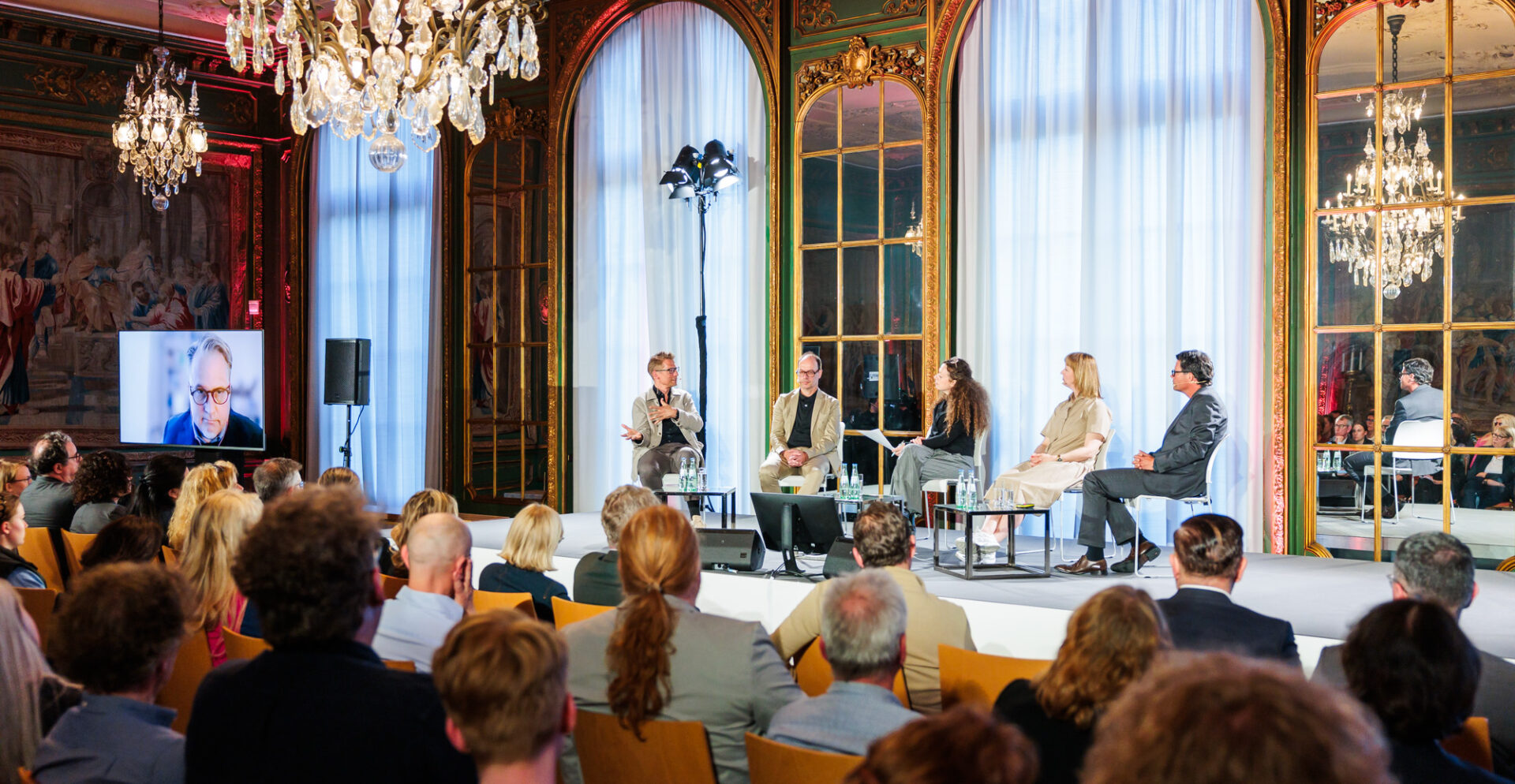
Salon am Hügel – Artificial intelligence between responsibility, ethics and innovation
The eighth Salon am Hügel took place yesterday at Villa Hügel and via livestream under the title ‘AI Agents – Between Autonomy and Control’. Prof. Dr Christoph Bieber, holder of the Johann Wilhelm Welker Endowed Professorship for Ethics in Political Management and Society at the NRW School of Governance at the University of Duisburg-Essen, Matthias Biebl, founder and CEO of the company RLVNT, Michael Harr, Managing Director of the Pro Senectute Foundation of both Basel, Prof. Dr Kristian Kersting, Professor of Artificial Intelligence and Machine Learning (AIML) at the Department of Computer Science at the Technical University of Darmstadt and Barbara Thiele, Director of Mediation and Digital Affairs, Jewish Museum Berlin discussed the ethical and social challenges of AI agents and for non-profit organisations in particular. The panel was moderated by author and journalist Shelly Kupferberg.
At the exciting interdisciplinary panel discussion, experts from the fields of science, culture, foundations and business shed light on different perspectives and revealed the opportunities and risks of AI agents. Among other things, the discussion shed light on the question of what responsibility institutions and companies must assume when using AI and what role non-profit organisations can play in this. The audience response – both on site and digitally – was higher than ever before. This underlines the social relevance of the topic as well as the associated uncertainties.
Trust, responsibility and transparency
Barbara Thiele reminded the audience of the high level of trust that museums enjoy in society – even ahead of science and public media. This responsibility requires a particularly sensitive approach to AI technologies. For example, he warned of the danger that AI could be used to distort historical narratives. Thiele spoke out in favour of transparency in the use of AI – for example by clearly labelling AI-generated content – as well as formats for teaching media skills, e.g. through archive workshops and citizen science projects.
AI between innovation and ethics
Prof Dr Christoph Bieber drew attention to the ethical implications: Where does the data used to train AI models come from? Is there informed consent for the use of this data? And is it even possible to map shared values algorithmically? Matthias Biebl also emphasised that the successful use of AI – for example in corporate communications – requires a strategic debate that goes far beyond the acquisition of software licences.
Prof Dr Kristian Kersting pointed out the need for Europe to develop its own AI infrastructures and language models in order to maintain technological sovereignty. He called on politicians and businesses alike to take action: ‘Anyone who just waits to see what happens in the USA will be left behind.’ At the same time, he warned against ‘humanising’ AI – and pleaded for a differentiated, enlightened and interdisciplinary debate.
Regulation and opportunities in demographic change
Another key point was regulation: the European AI Act is intended to ensure greater transparency – including through mandatory data audits. However, the discussion also showed that regulatory measures must not hinder innovation. The panellists got to the heart of the socio-political dimension: if AI-supported applications could efficiently help to counter the shortage of skilled workers in public administration, for example, investment in corresponding infrastructures is needed now – not least against the backdrop of demographic change.
A look into the future – without fear, with responsibility
Finally, the question was asked: ‘Do you trust AI?’ The majority of the audience expressed only limited trust – and yet many can hardly imagine a world without artificial intelligence. We need less ‘German fear’ (according to Kersting) and more courage to actively shape the future.
Conclusion
The evening impressively demonstrated how complex the topic of AI agents is – technically, ethically, politically and socially. The role of organisations working for the common good was highlighted, as was the need for a discourse involving society as a whole. The foundation will continue this dialogue – as a platform for reflective exchange, responsible technology design and social participation. The ‘Salon am Hügel’ can be viewed on the Krupp Foundation’s YouTube channel and on Instagram.
